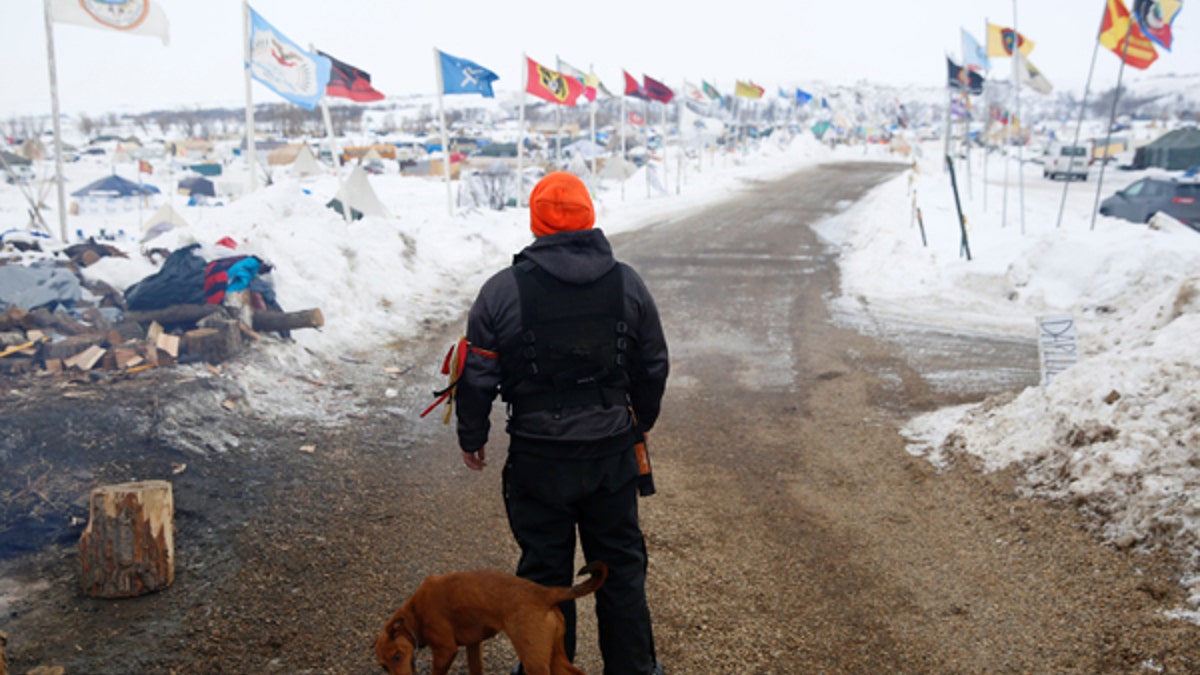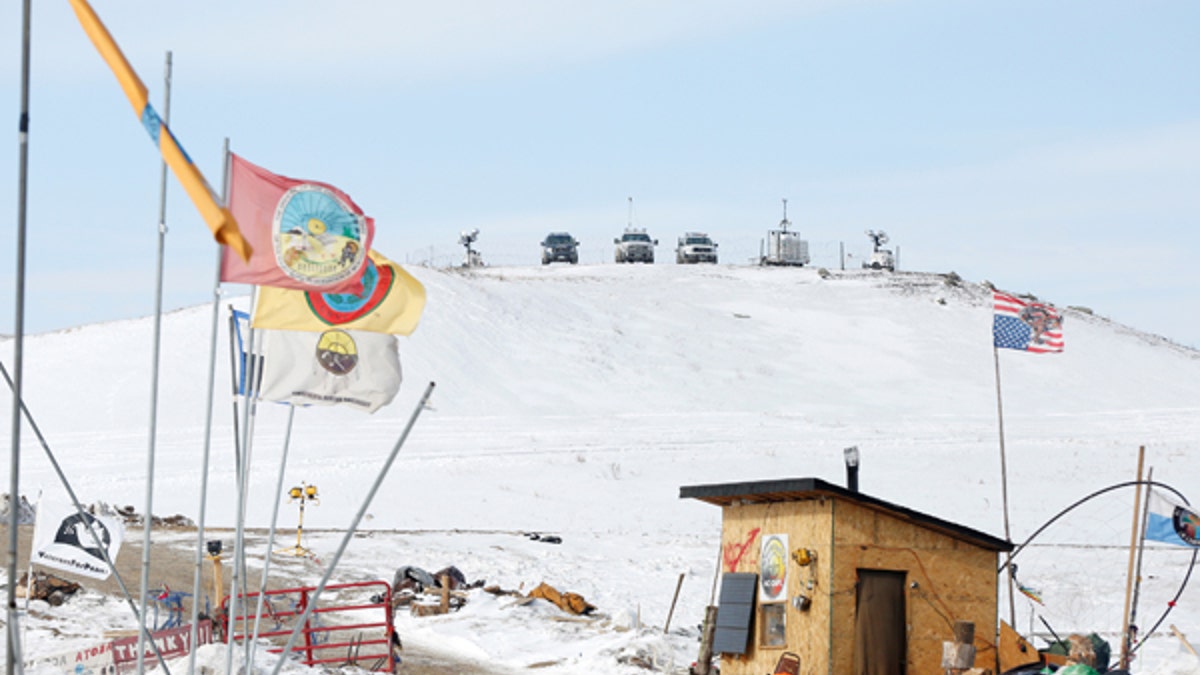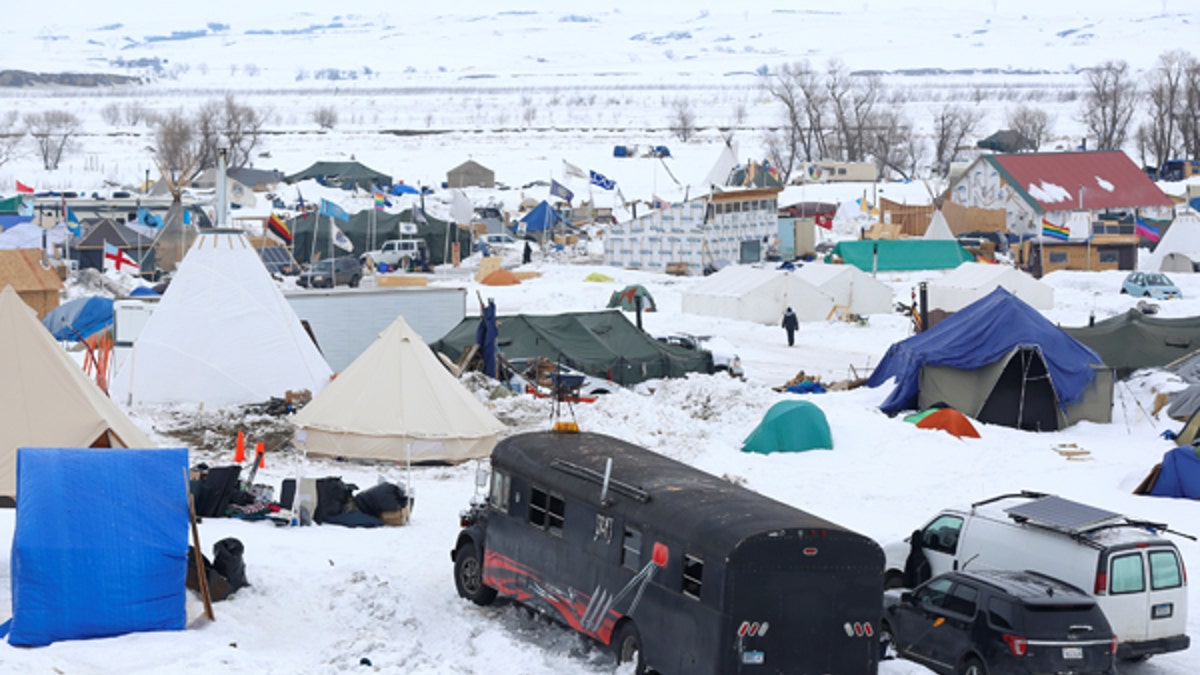
A security volunteer stands in the Dakota Access Pipeline protest camp near Cannon Ball, North Dakota, U.S., January 24, 2017. (Reuters/Terray Sylvester)
Will they stay or will they go?
Several hundred activists protesting the Dakota Access Pipeline are under a court order to leave by Wednesday the construction site they've occupied since last year.
Protesters at the North Dakota camp, which is near the Missouri River, seemed unfazed by threats of arrest.
Faced with the prospect of spring flooding, some protesters are considering a move to higher ground, though not necessarily off the federal land. Some may move to the Standing Rock Sioux Reservation. The leader of the tribe has urged protesters to leave.

Police vehicles idle on the outskirts of the opposition camp against the Dakota Access oil pipeline near Cannon Ball, N.D., on Feb. 8, 2017. (REUTERS/Terray Sylvester)
The holdouts seem as undeterred by the threat of the Missouri River flooding their campsite this spring as they are of being arrested Wednesday.
"If we don't stand now, when will we?" asked Tiffanie Pieper, of San Diego, who has been in the camp most of the winter.
Activists began their protest last August in a bid to halt the $3.8 billion pipeline that will carry oil from North Dakota through South Dakota and Iowa to Illinois. Dallas-based Energy Transfer Partners (ETP) began work on the last major section of the pipeline this month following Army Corps of Engineers permission to lay pipe under a reservoir near the Missouri River.
The protests have been led by Native American tribes, particularly the Standing Rock Sioux and Cheyenne River Sioux, whose reservations are downstream from the construction site. They say the pipeline threatens drinking water and cultural sites, an accusation ETP disputes.
The camp has been the site of numerous -- and sometimes violent -- clashes between police and protesters who call themselves "water protectors." There have been more than 700 arrests. The camp's population has dwindled as the pipeline battle has moved into the courts.

People walk through the Dakota Access Pipeline protest camp on the edge of the Standing Rock Sioux Reservation near Cannon Ball, N.D., on Jan. 24, 2017. (REUTERS/Terray Sylvester)
Protesters who remain say they're prepared to be arrested, but will remain peaceful.
"We'll make it difficult for them to handcuff us, but there will be no forceful opposition," said protester Bryce Peppard from Oregon.
The area has become strewn with garbage, and local police fear that the debris and snow may be covering the bodies of protesters who succumbed to the harsh conditions. Over the last several days authorities have searched the camp for human remains.
More than 200 truckloads of debris have been hauled out of the campsite since Monday, according to the office of North Dakota Gov. Doug Burgum. The cleanup will occur after 2 p.m., local time, Wednesday, when the remaining protesters will be moved from the camp.
Burgum has said he would rather there would be no arrests.
"The ideal situation is zero arrests are made because everybody figures out that it's not a place where you want to be when the flood starts to happen," Burgum said.
The Associated Press contributed to this story.









































